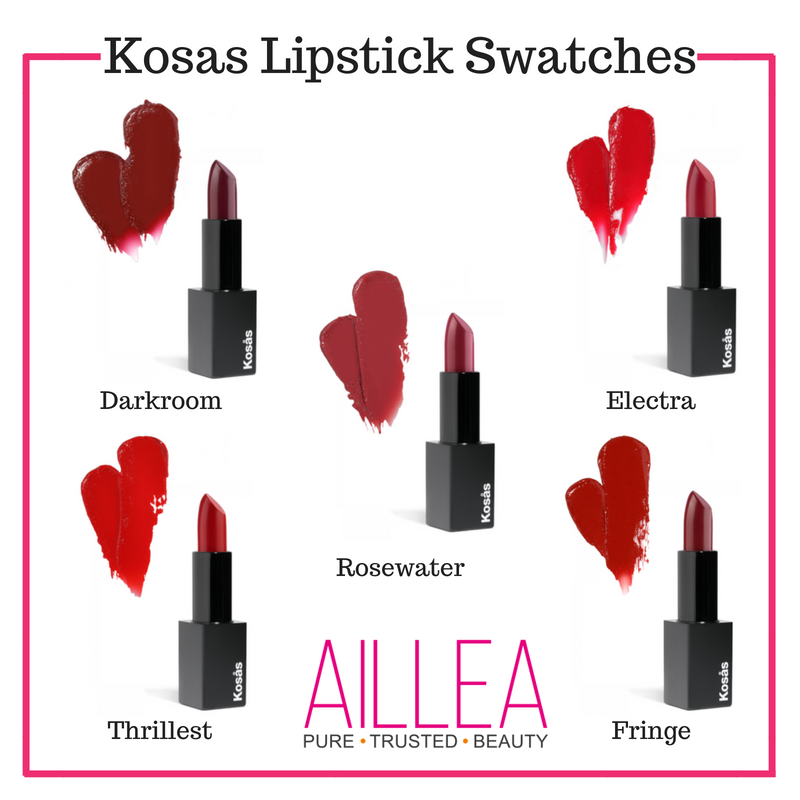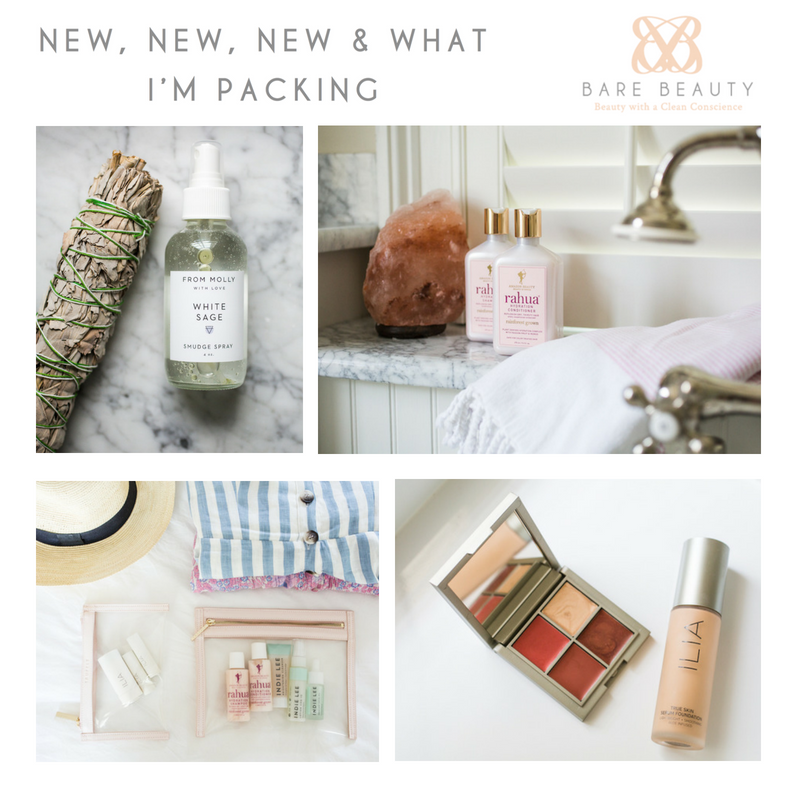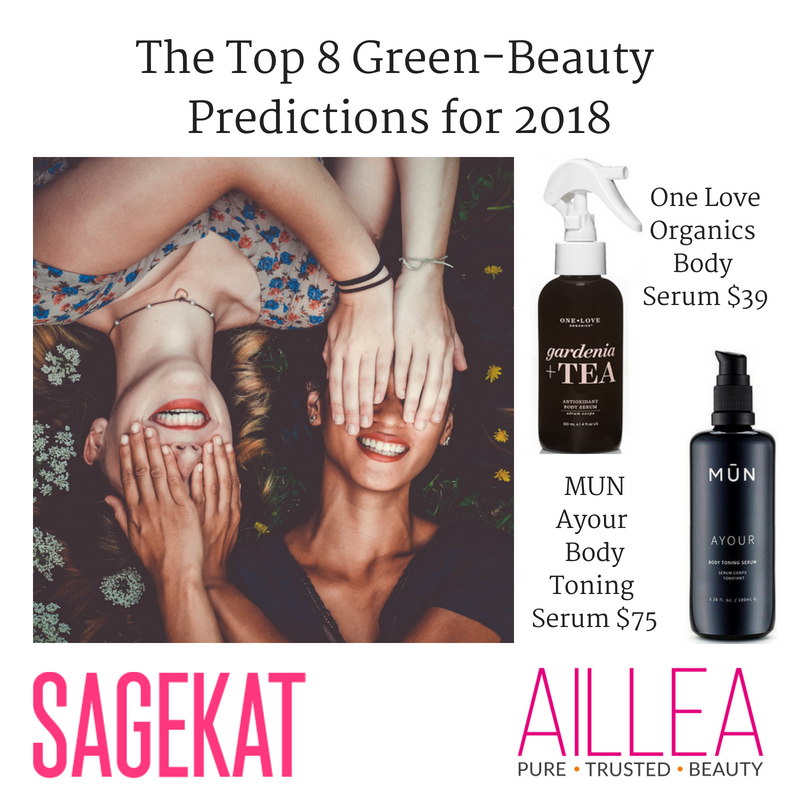
The practice of eating clean has been making major inroads in the nutrition world, with an emphasis on consuming whole foods free of chemical additives and preservatives. Now that idea is extending into the realm of beauty and personal care products.
There’s nothing new about this to women who grew up concocting natural cosmetics in their kitchens in the 1960s and ’70s, whipping up egg-white masks and sugar scrubs since there weren’t many natural options in stores. Since then, a lot of people have put their minds to the task, and the selection of products on the market is vastly improved.
Why all the fuss? Health and environment advocates have been pushing for more testing and scrutiny of ingredients used in consumer products, but government is slow to increase regulation of the industry. The bipartisan Personal Care Safety Act was introduced in the U.S. Congress by Sen. Dianne Feinstein, D-Calif., and Susan Collins, R-Maine, in 2015, and has only had one hearing, last fall on Capitol Hill. (Colorado Sen. Michael Bennet is on the Committee on Health, Education, Labor and Pensions, where the bill is under consideration.) The bill would fund safety testing of five ingredients and contaminants each year, among other things.
First on the list to test would be formaldehyde-releasing chemicals and a long-chain paraben, according to the Environmental Working Group, one of the bill’s supporters.
The Food and Drug Administration in September 2016 banned triclosan and triclocarban – chemicals commonly used in such products as antibacterial hand soaps and body washes – because studies showed they alter hormone regulation in animals, could be harmful to the immune system, and might contribute to the development of antibiotic-resistant germs, according to the Mayo Clinic.
Health advocates would like to see more such activity by the FDA, but aren’t waiting around. Citing studies showing the harmful effects of chemicals like parabens (used as a preservative) and phthalates (used in shampoos, conditioners and fragrance mixes), which have been linked to hormone disruption, companies are creating their own products and businesses promoting alternatives.
Colorado is home to a number of health and environment-conscious beauty businesses. Sometimes the companies begin with health concerns from the founder; other times it’s a matter of seeing a need in the marketplace and filling it.
Here are some examples of three such entrepreneurs.
Aillea: A clean beauty boutique
Kathryn Murray Dickinson’s journey began about 10 years ago when she was sick and couldn’t figure out what was wrong with her. A diagnosis of food allergies turned her into an avid label-reader, first of food and then of personal care products.
“The more I read and researched, the more I was finding ingredients that were linked to cancer, so I decided to replace everything I was using,” she said.
A self-described “beauty junkie” who had worked in the industry in New York, Dickinson said she was dismayed to discover “green washing” by companies that touted the natural benefits of their products. The items might prominently advertise an organic ingredient, but upon closer examination, include many chemical additives in their ingredient list.
Dickinson started her Aillea beauty business online in 2014, added a boutique in Denver’s Larimer Square in 2015, and opened in Cherry Creek Shopping Center in 2016. She now offers more than 40 brands of products.
She doesn’t expect customers to overhaul their beauty routine all at once, and recommends taking it slowly and sampling items before purchasing full-sized containers.
“We’re no longer in the days of patchouli oil; it’s grown by leaps and bounds,” Dickinson said. “I’m constantly researching, trialing and testing.”
“We have a toxic overload on our bodies,” she said. “I can’t control the environment, but I can control what is in my house and what I put in and on my body. My skin is so much happier.
“As soon as people realize their skin feels better, then they become sold on the concept. You don’t have to sacrifice. It’s a step up because you’ll get as good or better results with clean products as with what you were using before.”
Save or splurge: Some ideas for product swaps
Making the transition from mass-market personal care products to healthier options can be expensive and hard to navigate for consumers. Kathryn Dickinson, an avid label reader and owner of Denver-based Aillea beauty boutiques, shares her recommendations on products she’s researched that are effective but don’t come with a lot of preservatives or harmful ingredients.
The retail outlets listed below are just a starting point, so look for products in mainstream drugstores as well as health food stores and online marketplaces. Supermarkets such as Safeway have expanded their selection of natural- and organic-ingredient personal care items.
Start with products that cover the whole surface of your body, such as soaps, lotions and bath products:
Instead of Cetaphil Cleanser,
- Save with 365 Daily Facial Cleanser, 16 oz., $5.99 at Whole Foods; and Acure Sensitive Facial Cleanser, 4 oz., $9.99 at Whole Foods and Target online;
- Splurge on Pure Organics Cleansing Gel 4.2 oz., $32 at Aillea
Instead of Jergens Lotion,
- Save on Alba Botanica Very Emollient Body Lotion 32 oz., $7.99 at Whole Foods and Walgreens,
- Splurge on Indie Lee Unscented Body Lotion 4 oz., $22 at Aillea
Instead of Dove Body Wash,
- Save with Acure Organics Ultra Hydrating Body Wash 8 oz., $9.99 at Whole Foods and Target, Dr. Bronner’s Bar Soap 5 oz., $4.69 at natural and regular grocers, Alaffia Bar Soap, $3 at Whole Foods
- Splurge on Osmia Oh So Detox Soap, 6 oz., $18 at Aillea
The next swap could be products used and repurchased frequently:
Instead of Secret Deodorant,
- Save on Schmidt’s Deodorant, 3.25 oz., $8.99 at Sprouts and Natural Grocers, Every Man Jack 3 oz., $5.99 at Target, Pacifica Underarm Deodorant wipes 30 ct., $8.99 at Target,
- Splurge on Agent Nateur Holi(stick) Deodorant 1.7 oz., $21 at Aillea
Instead of your normal shampoo and conditioner,
- Save on Giovanni Tea Tree Triple Treat Shampoo + Conditioner 8.5 oz., $6.99, Whole Foods, SheaMoisture Raw Shea Butter Moisture Retention Shampoo, 13 oz, $8.79 at Target, Acure Organics Repairing Shampoo + Conditioner 8 oz., $9.99 at Whole Foods
- Splurge on Rahua Shampoo, $34 + Conditioner, $36 9.3 oz. each, at Aillea
Instead of your normal foundation,
- Save with Well People Foundation Stick (Cream) .4 oz., $28.99 at Target, Well People Altruist Foundation (Powder) .21 oz., $24.99 at Target, or Lily Lolo Foundation .16 oz., $22 at Aillea,
- Splurge on RMS UN COVER-UP .20 oz., $36 at Aillea, Ilia Foundation .1 oz., $44 at Aillea
Instead of your normal mascara,
- Save with Pacifica Dream Big Mascara .25 oz $15.99, at Target, Well People Expressionist Pro Mascara .23 oz., $21.99 at Target
- Splurge on Lily Lolo Mascara .25 oz., $20 at Aillea
A third category to start with are lip products, which are absorbed and ingested.
Instead of your regular lip balm,
- Save with S.W. Basics Organic Lip Balm Flight a 4-pack .15 oz per lip balm, $15.19 at Target
- Splurge on Henne Luxury Organic Lip Balm .35 oz, $19 at Aillea
Instead of your regular lipstick,
- Save with Well People Nudist Colorbalm .07 oz., $13.99 at Target, ZuZu Luxe Lipstick .13 oz, $18 at Whole Foods
- Splurge on Ilia Lipstick and Tinted Lip Conditioner .14 oz., $26 at Aillea
Instead of your regular lipgloss,
- Save with Well People Bio Extreme Lip Gloss .17 oz., $14.99 at Target, ZuZu Luxe Lip Gloss .17 oz, $17.99 at Whole Foods and Target
- Splurge on Evelyn Iona Natural & Organic Lip Gloss $12.00 at Aillea
For more information:
Want to learn more about the ingredients in the products you use every day? Check out the Environmental Working Group’s website, ewg.org or download its EWG Healthy Living app, where it rates more than 64,000 products and has information on its EWG Verified program, which counts such skin care companies as Colorado-based MyChelle Dermaceuticals as members.
Another recommended source for information is Think Dirty, and its Think Dirty app.
CLICK HERE TO READ FULL ARTICLE




